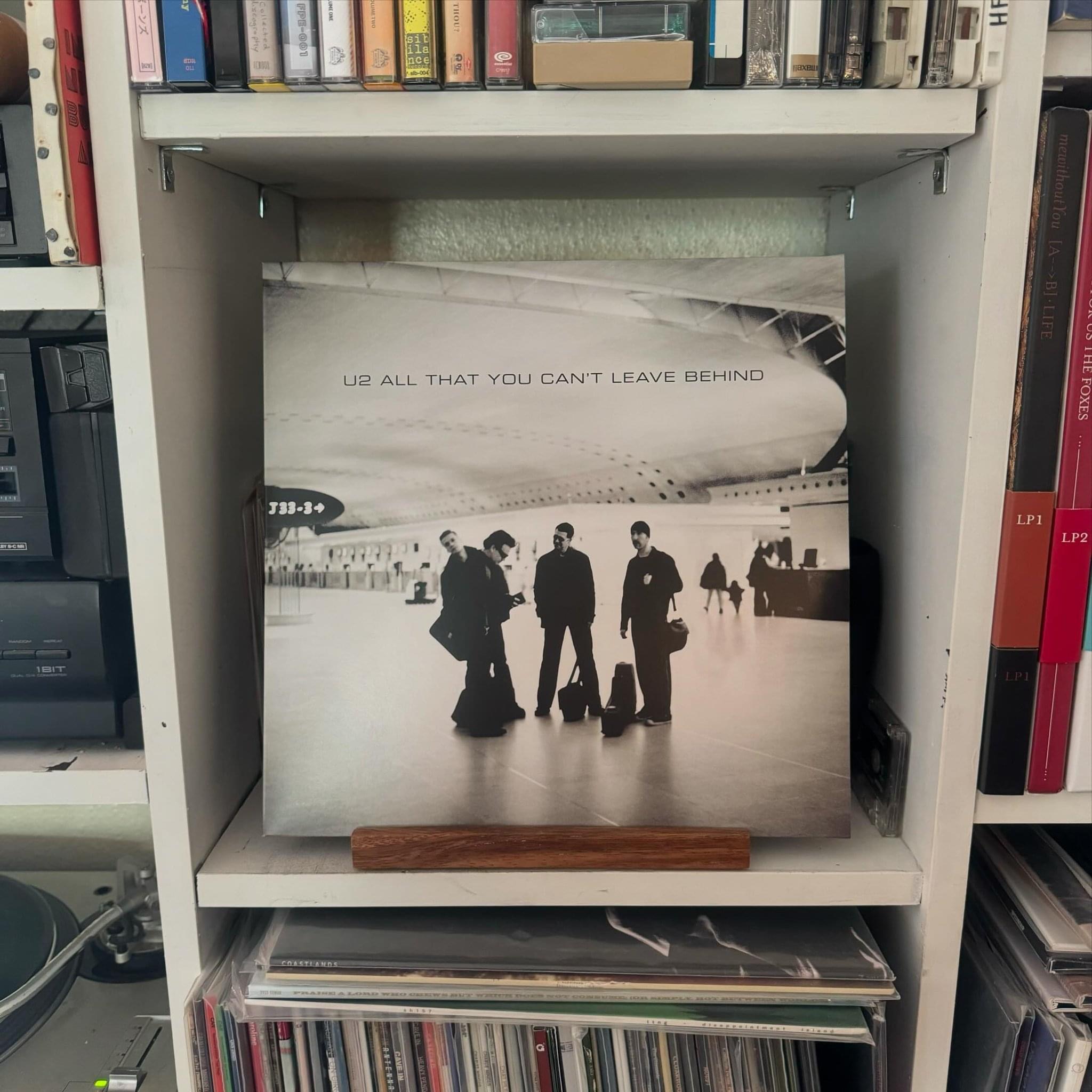 “We are re-applying for the job of the best band in the world.”
“We are re-applying for the job of the best band in the world.”
Thus spake Bono at numerous occasions on the press tour that accompanied All That You Can’t Leave Behind. And I’m not sure it’s possible to find a more succinct description on this record.
Despite whatever artistic merit Pop had (read: heaps), it didn’t translate to commercial success. Dissatisfied with their slow fade from the pop charts, they set aside the fascination with electronica and dance music that carried them through the ’90s and returned to what brought them the most success.
But while their job application might display some compelling aptitude for the position, it falls short of living up to their monolithic legacy.
I understand why they needed to change course so drastically after Pop. Between that record and the two before it, there was little ground left to break. Their ’90s output was brave and innovative, but that sort of creative iconoclasm isn’t sustainable. You can only reinvent yourself so many times before you lose yourself entirely.
Eager to reclaim their own identity, they went back to the formula that created their most enduring works. They enlisted Daniel Lanois and Brian Eno, the team that helped create The Unforgettable Fire, The Joshua Tree, and Achtung Baby, set down the samplers, and picked their old instruments up. (literally—The Edge uses the same Gibson Explorer and Electro-Harmonix Memory Man that he played on Boy).
It’s not a seamless transition. It’s a bit too self-conscious about its intentions, which creates a sort of push and pull between trying to sound like their old stuff but not too much like their old stuff. A few moments feel like fumbled attempts at rewriting songs from Joshua Tree. At other times, Edge seems like he’s trying to avoid sounding too much like himself, even when you can almost hear the Edgy riff that would have fit perfectly. Bono drops the irony that informed nearly every second of their 90s output and goes all in on sincerity. Sincerity is a hard thing to steer without getting into cheese territory, and Bono isn’t completely successful in navigating that nuance.
But when it works, brother, it works. “Beautiful Day” kicks the door with the perfect encapsulation of the record’s mission statement. Bono offers a defiant statement affirming the beauty of life when the world offers constant rebuttals. The Edge offers a riff that could have been on War while Adam and Larry rip through their most propulsive groove since Achtung Baby. “Walk On” is textbook U2 without feeling uninspired. “Peace On Earth” offers a sort of reverse to “Beautiful Day’s” rebellious optimism, packing bitter cynicism in an understated ballad. Edge’s solo in “When I Look at the World” sounds like no other guitar player on earth, but not in a way that sounds like he’s doing an impression of himself. “New York” is a weird (and unfairly maligned) track that is reminiscent of the sort of ambient noodling on The Unforgettable Fire.
And despite the sense that they were simply returning to the fork in the road before Achtung Baby and turning the other direction, the lessons of Zooropa and Pop are still present. “Elevation” features a growling bass synth. “Kite” uses a short loop as a launching pad for a profound anthem on raising a child (as if U2 wasn’t already dadcoded). “Grace” makes rich use of synthesizers beneath a bluesy Edge lick while Bono paints the sentiment of “Beautiful Day” onto an individual. “The Ground Beneath Her Feet,” a bonus track included on the vinyl version, creates a ballad out of a Salman Rushdie quote and augments their usual palette with dark electric piano, drum machine, and Daniel Lanois’ lap steel guitar.
Ultimately though, the All That You Can’t Leave Behind feels like the first clumsy step in U2’s catalog of studio records (if we don’t count Rattle & Hum, which I don’t). It’s best moments—which are numerous, let’s be clear—aren’t enough to buoy the clunkier songs above water. Most of the songs are just fine. “Elevation” is a fun track but is a bit hamfisted. “Stuck In a Moment That You Can’t Get Out Of,” “In a Little While,” and “Wild Honey” may never win me over. As much as I enjoy “New York,” I have to admit that Bono doesn’t do the track too many favors. At its worst though, the record is just fine. But when you’re a band like U2, “just fine” doesn’t cut it.
Like I said, I understand why they needed to change course after Pop. But this record feels like it’s not totally sure what the next step is. For the first time in their career, it felt like U2 was floundering. Luckily, they’re more than able to offer some good music while they try to figure out where to go next.